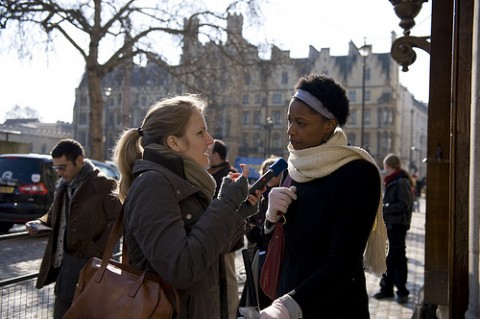What Inquiry Makes Possible
September 2, 2010 4 Comments
|Photo by conscience: taxes for peace not war|http://www.flickr.com/photos/consciencetaxesforpeacenotwar/4422031309|
A couple of weeks ago I worked with a special group of special education facilitators who will be helping to coordinate key players in their school district to provide services to students with different learning needs. This work will put these people in some difficult circumstances when it comes to occasionally not being able to provide exactly what parents want for their children. For this reason, we spent a fair amount of time talking about how one can be of service when faced with irreconcilable differences. Much of this came down to staying grounded in one’s values, continuing to regard the humanity of those of others, and standing firm for what the district could reasonably provide.
What I also also saw on display for those three days was the incredible power of artful and compassionate inquiry. Many scenarios that we worked through (via role playing and coaching), including those that seemed beyond the pale of any kind of helpful intervention, were altered when the intervenor asked the right question, at the right time, in the right way. One example was when two participants experienced a breakthrough as one coached the other by asking the question, “What is your perception of this situation?” not once, not twice, but three times. She did not ask, “What is the problem?” sensing there was something in the way the situation was being viewed that might provide some opportunity for resolution. Sure enough, the third time the question was asked, the person being questioned got it. “There’s something I can do to alter the situation by recognizing I’ve been choosing to a see it a certain way that may or may not have anything to do with reality.”
This session coincidentally timed with my re-reading of Fran Peavey’s work on strategic questioning. She writes,
“Questioning reveals the profound uncertainty that is imbedded in all reality beyond the facades of confidence and sureness. It takes this uncertainty towards growth and new possibilities.”
Peavey’s seven key features to shaping strategic questions are most helpful in this regard:
- A strategic question creates motion. It asks, “How can we move from where we are now?”
- A strategic question creates options.
- A strategic question avoids “Why?” which can create resistance.
- A strategic question avoids “Yes or No” answers, which limit depth and possibility.
- A strategic question is empowering, it creates confidence. Rather than ask “What is wrong with us?” ask “What will it take for us to be different?”
- A strategic question asks the unaskable questions – think The Emperor’s New Clothes.
- A strategic question is a simple sentence; it is elegant in its simplicity.
Would love to hear your stories about how inquiry has opened up possibility for you and others.
4 Comments
I’m a believer Curtis. I like to frame learning events and convenings, and even strategic processes as inquiries. I am a big fan of the World Cafe precisely because it works magic when we dare to ask the right questions – and I mean it when I say “dare,” I find it amazing how often my proposed questions are scaled back by a nervous partner – perhaps we fear too much self-revelation? And yet, I do believe that it is the only way to evolve – to inquire more deeply, to reveal more of ourselves to each other.
Interestingly enough, at a personal spiritual level, self-inquiry is one of the best ways to frame a meditation practice – we turn withing and we ask – who is it that is saying “I Am”?
I’m with you to. You remind me of our colleagues at The Right Question Project (http://rightquestion.org). Their tag line is “Good questions > better decisions > a stronger democracy.” Their work centers on helping people learn to ask, sharpen and pursue their questions. They describe their work as “what many people consider to be the simplest, most powerful strategy available for helping people in low and moderate-income communities learn to advocate for themselves, participate in decisions that affect them and partner with service-providers and public officials.”
Not only do questions preceed answers, the right questions can catalyze action.
Thanks G and CSP . . . I am particularly drawn to questions as I consider leadership for a sustainable future. Seems we are going to have to get through some layers of assumptions and old ways of thinking and doing to change behavior sufficiently to mitigate disaster and draw on the best of our collective intelligence!
Επισκευή υπολογιστη στην Ανοιξη γρηγορα
και εγγυημενα. Τωρα η EASolutions βρισκεται κοντα
σας. Για οποιαδηποτεερωτηση μη διστασετε να καλεσετε στα τηλεφωνα μας.